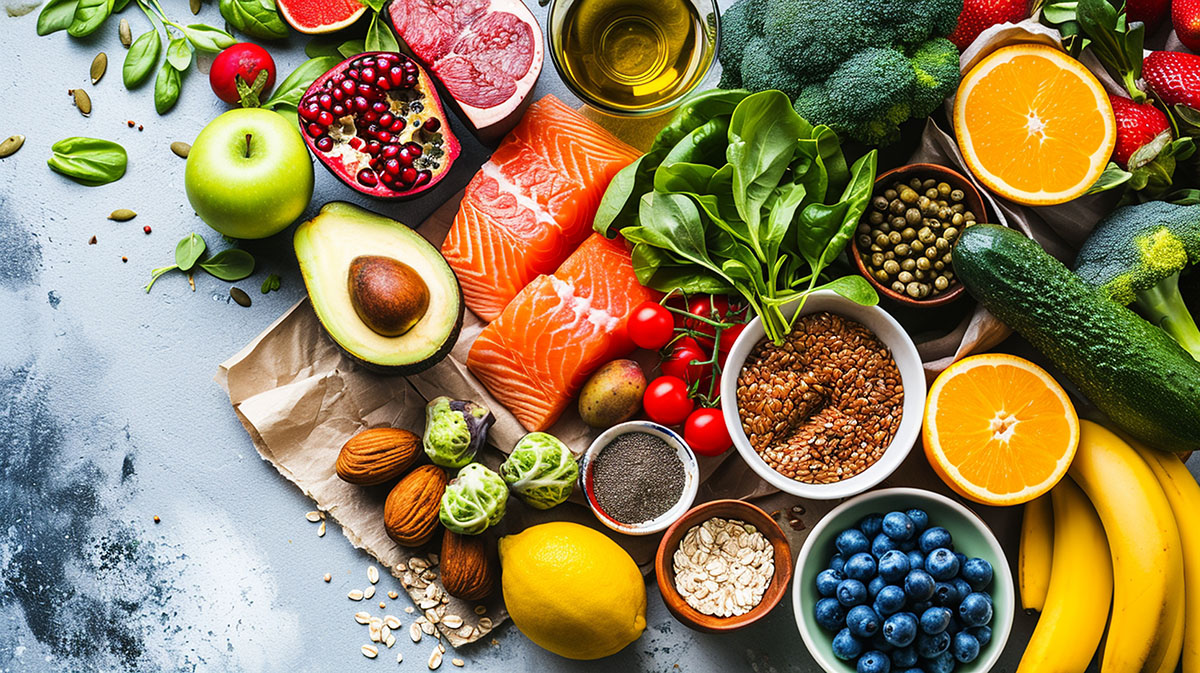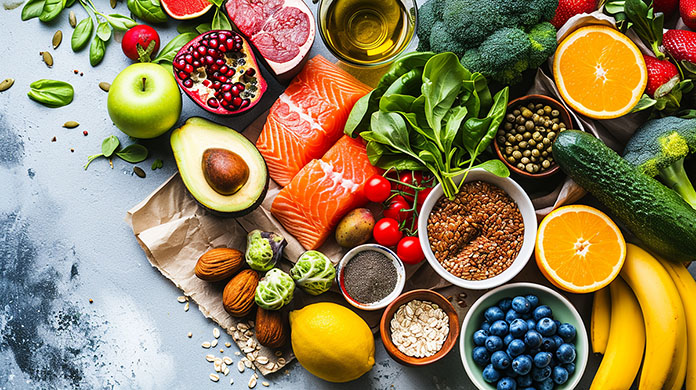
You may be surprised to know that there are a number of other therapeutic methods that fall under the umbrella of Chinese medicine. You see, acupuncture is only one of the many healing tools that your practitioner is trained to use. They have Chinese herbal medicine, cupping, a kind of bodywork called Tui Na and heat therapy at their disposal. In addition, there are many instances in which your acupuncturist will provide nutritional guidelines to support your health goals.
In Chinese medicine, nutritional therapy is a little bit like herbal medicine, in that foods have inherent temperatures and actions, just like herbs do. However, while the actions of food are more subtle than that of herbs, food is considered to be medicine that you eat three times a day. In fact, in ancient times, practitioners of Chinese medicine believed that first you should try to heal a condition through dietary means, and only if that fails should you turn to acupuncture and herbs. Today, we tend to look for solutions that work faster than the time it takes to correct a health problem through diet. However, what you eat can have a huge impact on your health, and dietary therapy plays an important role in augmenting any other treatments you may undergo, as well as in maintaining your health.
Here are some things to know about healing through nutritional therapy:
There is no single best way to eat. I know, you’ve probably read about any number of diets or eating plans, many of which advertise themselves to be the answer to all your health or weight loss problems. The reality is that your body is different from that of everyone else, and it comes with a unique set of needs, conditions and health history. This means that the diet that worked wonders for your co-worker or friend may not be the best option for you.
Your digestion is an important component in choosing the best diet for you. That’s because you eat to get the energy and nutrients needed to keep your body and all its systems running smoothly. These nutrients are incorporated into your body through the process of digestion. If you have funky digestion, much of the nutritional value of your food may not be absorbed. In Chinese dietary therapy, your digestion is key. If you’re having any kind of digestive issues, the first step is to eat foods that help heal and support that process.
Foods are more than just a package of nutrients. In Chinese theory, foods have intrinsic actions similar to that of herbs. For example, foods like ginger, scallions, certain meats can alter your internal temperature and warm you up energetically. In contrast, mint, yogurt, melons and other fruits are considered to be cooling. Foods can also have other actions on your body. Some can tonify your blood, others can moisten your dry throat or calm a dry cough, others can reduce nausea and still others can boost your energy. So, while it’s true that foods do provide a unique nutritional profile, they also affect your internal temperature and have other actions that impact your health.
How you cook your food also matters. This is especially true of produce. While certain nutrients may be reduced when you cook a vegetable, raw food may not always be the best answer, either. Simply put, the longer you cook a food, the easier it becomes to digest. Cooking helps to break down fibrous vegetables, which means your body doesn’t have to work as hard to digest it. If you’re having digestive issues, you may be better off eating your produce cooked. Also, the longer you cook any food, the energetically warmer it becomes. So, a dish of raw vegetables is far more cooling to your body than if you had your vegetables in a soup, stew or stir fry. And that’s not because cooking heats them up, it’s because it takes more digestive fire to break down the fiber in raw veggies; a process that takes more of your energy and cools you off overall.
Food cravings provide information. In Chinese medicine, food cravings tell your practitioner what’s going on with your health. The flavor and types of food that you’re craving points the way to certain organ systems and functions that may need attention. For example, if you’re craving sweets or carbohydrates, it may be a sign that you need more energy, your digestion is off, or it may be a signal of stress or an emotional upset. Craving salty foods can be associated with your kidney function and a hankering for sour foods might direct your practitioner to your liver. Bitter foods are associated with your heart, and those that are somewhat spicy are directed to the function of your lungs.
The bottom line is that while Chinese nutritional therapy may sound confusing, what’s most important to know is that it’s very individual, a great way to augment your acupuncture treatments and support your overall health. Based on your current condition or symptoms plus your health history, your acupuncturist can identify helpful foods to add to your diet, as well as foods to avoid that aggravate your issues. If you want to know more about how nutritional therapy can help you, please contact our clinic.

Cindy Chamberlain is an acupuncturist in Overland Park, KS and the founder of Eastern Healing Solutions, LLC. She is licensed in Kansas and Missouri and has been practicing traditional Chinese medicine since 1996.


